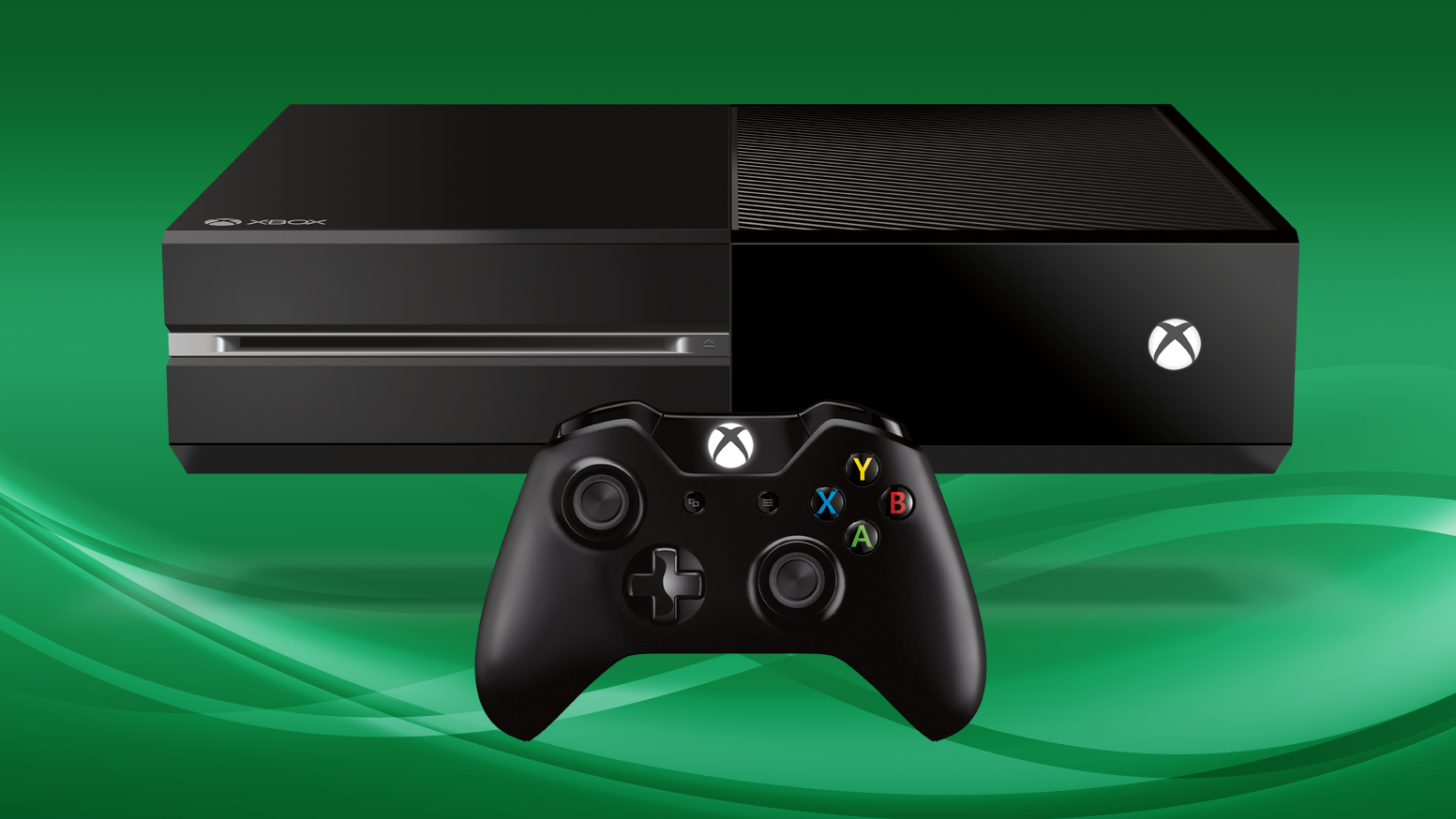Why you can trust TechRadar
Xbox Live (now Xbox Network) has been the gold standard (pun fully intended) for console online services since the original Xbox. An almost peerlessly stable and fully-featured offering that almost single-handedly helped turn Xbox from niche concern into commercial behemoth.
Its third iteration is perhaps its biggest test so far. Still a premium subscription, but now one that locks off the majority of the console's content, it needs to prove itself as a truly worthy service, almost to make the entire console a worthwhile purchase.
While anyone can connect their Xbox One to the internet, it takes a Gold subscription to make most of its many menu options start working, not to mention cease the barrage of adverts for the service the dashboard will throw at you until you sign up. That said, an existing 360 Gold account covers both consoles, so upgrades will be sorted out of the box.
Xbox One: Xbox Live
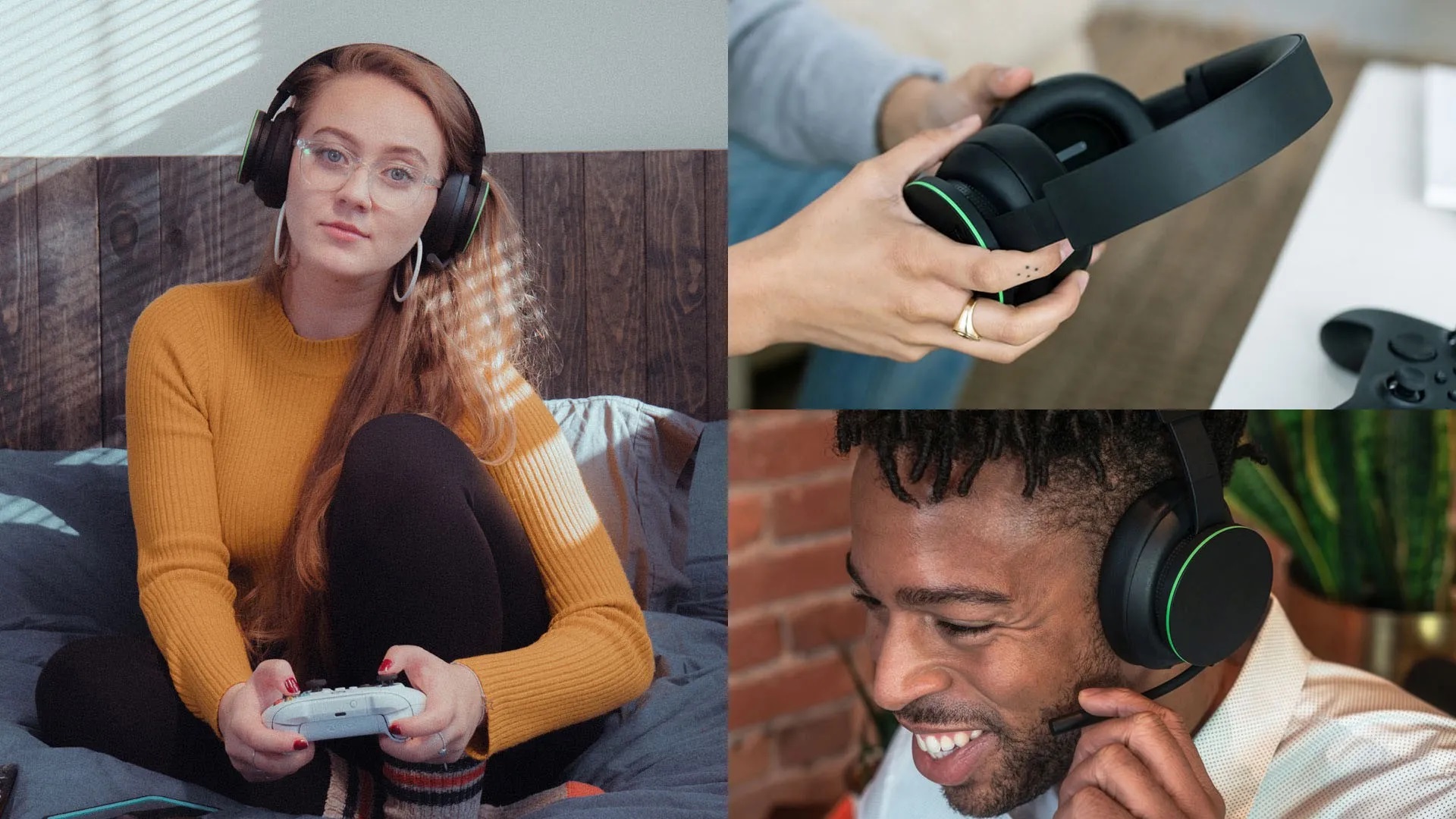
Party chat, Game DVR and all online games require payment to access but, for the most part, that feels like a fair price to pay. With PSN now a premium service, direct comparison reveals the One's online efforts to be superior. It's a more stable service for a start, without Sony's all-too-regular downtime. Matchmaking's fast across dedicated servers, and cloud computing is being used to help upcoming games like Crackdown "outsource" much of their processing, resulting in better looking, better performing games.
Party chat, long Xbox Live's secret weapon, has suffered, however. While being a Snap-able app should make it even handier, for some reason Microsoft's app-agnostic chat and invite system is now a buggy mess. Parties regularly fail to set up or simply refuse to recognise voice chat. It's a significant problem, especially given how fundamental the service was to 360. We'd expect coming updates to combat this, but don't expect a totally smooth ride.

The most significant addition to Xbox One's version of Live, however, is the Games With Gold service. A straight copy of PS Plus, this offers four free games each month (two on Xbox One, two on Xbox 360), not to mention weighty discounts on many games. You can check out our ever-updated guide to Xbox's Games with Gold free games for more details.
The scheme doesn't have quite the hit-rate of PS Plus just yet, but with brand new games like #IDARB launching as a free download, and 75% discounts on big-hitters like Titanfall, we can see it becoming as essential a monthly destination as Sony's equivalent and as much a reason to pay for Gold as anything else.
At least, that's how it used to be. Games with Gold has been scaled back considerably in the last few years, mostly supplanted by Xbox Game Pass. Because Xbox Game Pass Ultimate included Xbox Live Gold, anyone opting for the higher tier can access both the monthly freebies and new games coming to Microsoft's popular subscription service.
Xbox One: Game DVR and media sharing
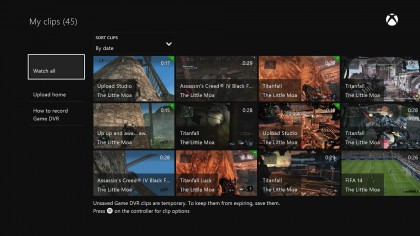
A major focus of both Xbox One and PS4 has been in embracing the world of mass sharing, both on social media and video playback sites like YouTube. Where PS4 offers a neat functionality in its share button menu, the One offers both a less comprehensive, yet in some respects more accommodating, take on the idea.
With regards to video content, the built-in Game DVR feature will save the last 30 seconds of gameplay footage if you say "Xbox, record that" to your Kinect (or double-tap the menu button and press X, for those without the camera).
Clips are sent to the Upload app, a one-stop shop for everything you and your games capture. Here, you can share clips with friends, or showcase them on your public profile. Certain titles, like Kalimba, even automatically record the 30 seconds around you unlocking an achievement
Clips can either be uploaded directly to YouTube (best performed by downloading the official app, which has the feature built-in) or sent to a OneDrive account through the Upload app, where they can be downloaded and edited on a computer, perfect for YouTubers who want to perform complex edits without the need for faffing around with a USB drive.
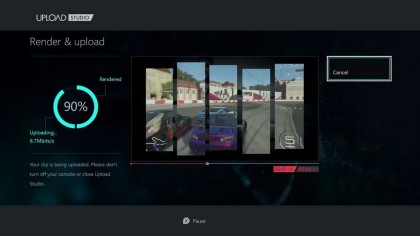
For the more casual video sharer, Upload Studio, yet another app, can be used for very simple editing, effects and voiceovers if you only want to make small changes, or stick multiple clips together.
The 30 second reaction recordings are both less versatile, and a little more manageable than PS4's 15-minute equivalent, although I have to say that capturing too much is more satisfying than the numerous times the One's short clips have just missed the moment I wanted to share.
If you're expecting to want to record something, you can use Game DVR to manually record a chunk of gameplay, but given that most stand-out gaming moments come out of nowhere, it's something of a clunky solution.
That said, the clips themselves are comparable to the PS4's efforts (i.e. not particularly high in quality, but perfectly serviceable), and when it does work in your favour "record that" is a far more immediate feature than the share button.
Xbox One: updates
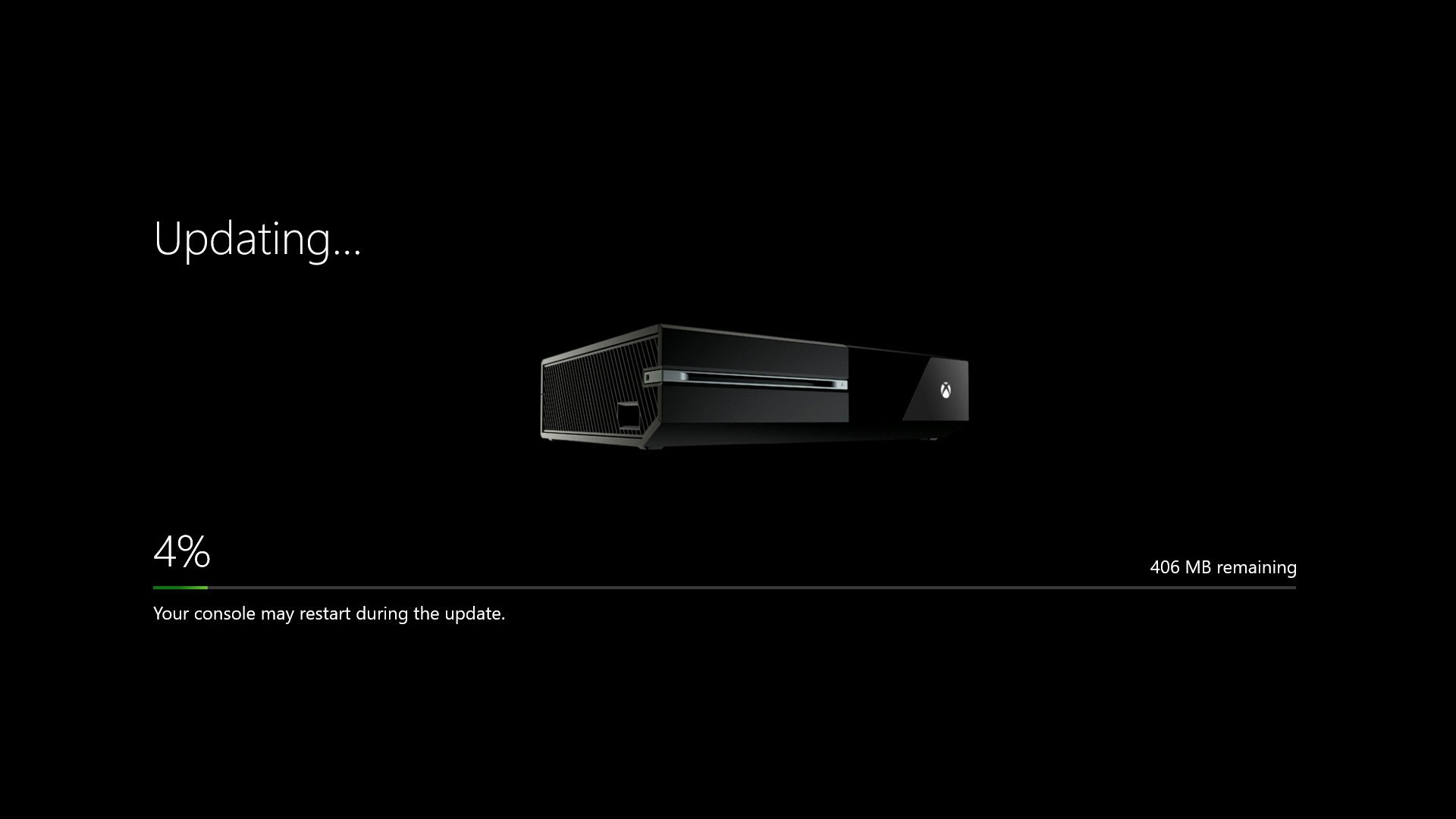
Key to almost every section so far is Microsoft's near-constant updates to the console, which have turned a relatively under-featured launch console into a far more appealing prospect a year or so later. We might have balked at updating regularly in the past but the ability to have the Xbox One download updates in standby mode (easily switched on in the settings menu) means we've rarely had to wait to play.
While it's fair to say that much of the work done has been to fix obvious problems (with a fair bit still outstanding), it would be unfair to say that Microsoft has simply been patching up holes. Many of the One's best updates have come from left field, such as extra media streaming file formats, and turned some of the console's features into the best in the market.
Given Sony's relative reticence to make changes to the PS4, it's easy to see the coming year bringing the Xbox One up to speed with much its rival's current advantages, and outstripping it in others.
Add to that Microsoft's proven interest in and reactions to fan feedback. Its UserVoice petitions site, where fans suggest features that could be added, and the Xbox Preview Programme, which rolls out updates to a select group of users early, to catch any final bugs before release, mean it could well be seen as the most owner-focused console yet released. With enough consumer weight behind an idea, Microsoft can quickly and easily institute it.
James was part of the TechRadar editorial team for eight years up until 2015 and now works in a senior position for TR's parent company Future. An experienced Content Director with a demonstrated history of working in the media production industry. Skilled in Search Engine Optimization (SEO), E-commerce Optimization, Journalism, Digital Marketing, and Social Media. James can do it all.
